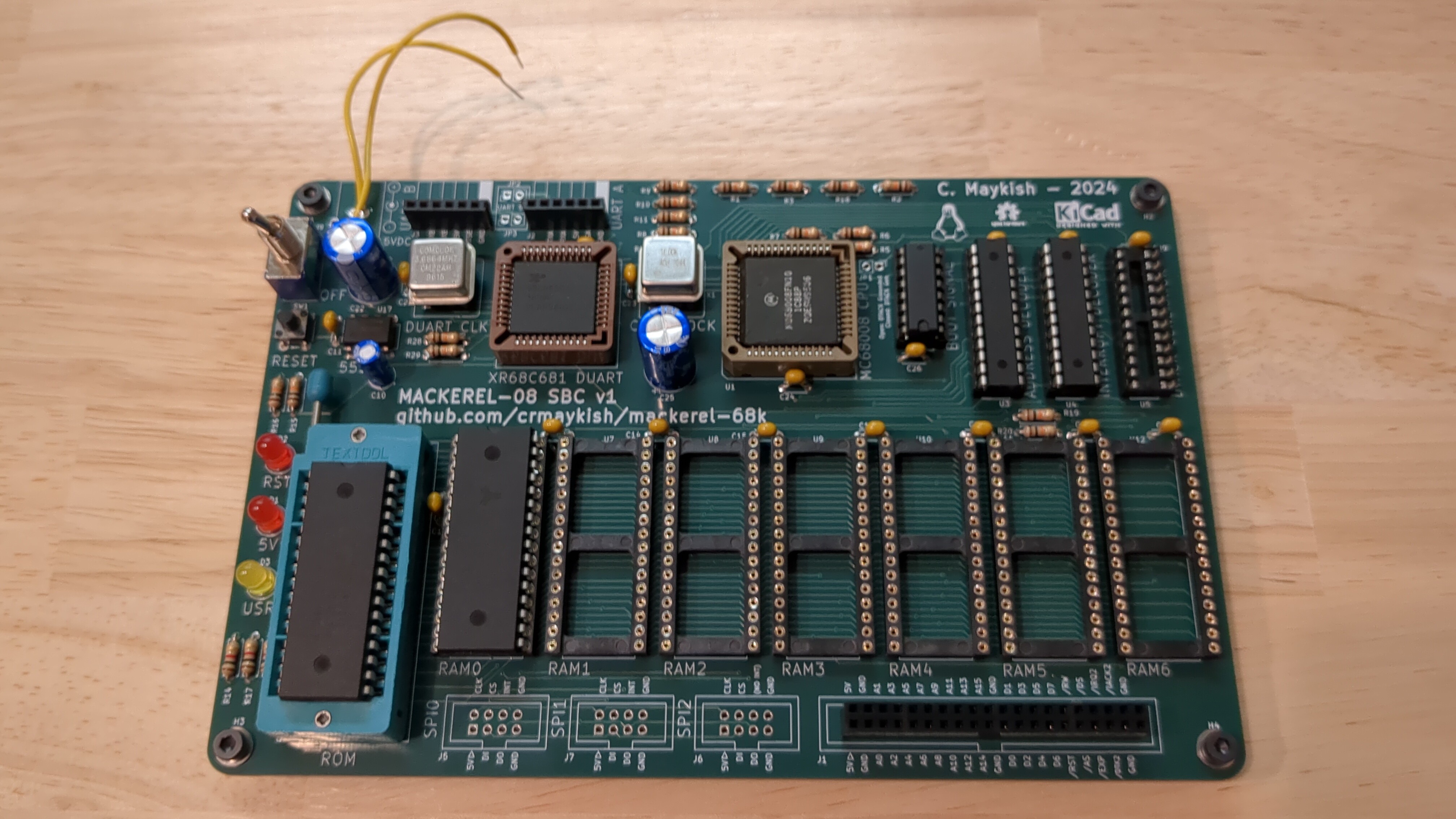The first PCBs for Mackerel-08 v1 are in and I'm happy to say they're not dead-on-arrival. I had to update some of the PLD logic and I spent an embarassingly long time debugging the DUART only to realize that I was plugged into the wrong serial port, but Mackerel is alive and well.

I'm still waiting on a few of the components (DC barrel jack connectors, for example) and as always, there are a few minor issues with the design I need to correct, but they are mostly cosmetic or mechanical, at least so far. The labels on the 5V and USR LEDs are swapped and I think I will change the layout of the serial port and SPI headers in the next revision, but these are small issues.
Another thing I realized only after I ordered the boards is that I did not expose the /VPA pin on the expansion header. This will prevent any additional hardware from using autovectored interrupts This is annoying, but I don't have any immediate plans to use it so I'll have to live with it for now.
I've only got 512KB of RAM and 512KB of ROM installed, but that's enough to test the bootloader and uClinux 2.0, both of which are working as expected, fully stable at 16 MHz even. Once I order more RAM or scavenge some from the hand-wired prototype, I'll fill out the empty sockets and get 4.4 booting, but I'm confident that will be smooth sailing.
The main features left to test besides the full RAM config are SPI and DTACK generation. Until now I've always had DTACK grounded. This has worked fine with the fairly modern and fast memory and DUART I'm using, but I'd like to have a real DTACK generator for flexibility. The unpopulated third PLD slot on the top right is responsible for this. There's a jumper near the CPU to select DTACK grounded or to use the DTACK generation PLD.

SPI testing is just a matter of wiring up the SD card and updating the bitbang code with the new pinouts.
It always feels good when a design works as expected. I'm looking forward to spending some time playing around with this board and polishing up some of the software and documentation.
 Colin
Colin
Discussions
Become a Hackaday.io Member
Create an account to leave a comment. Already have an account? Log In.